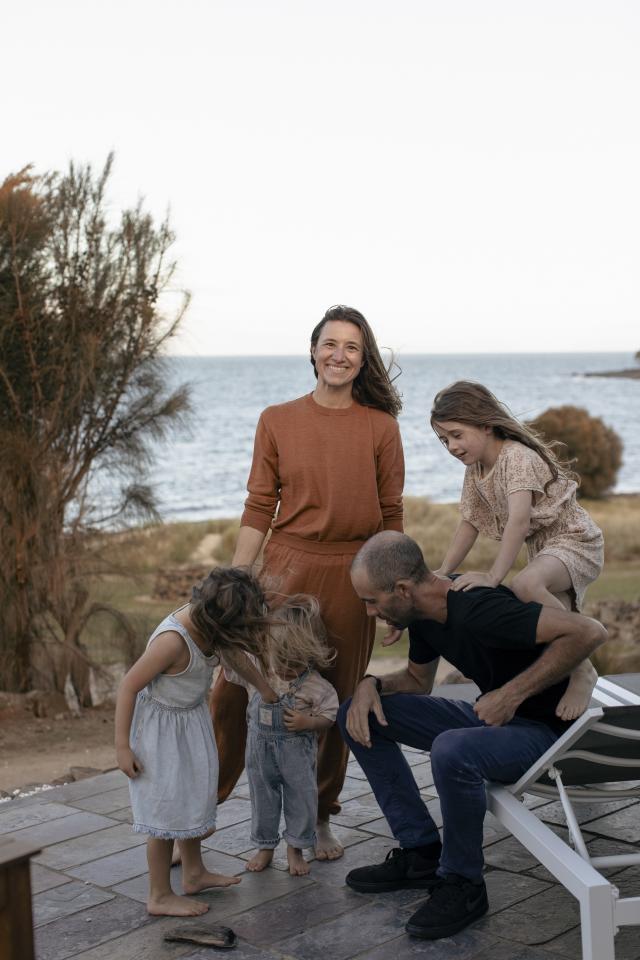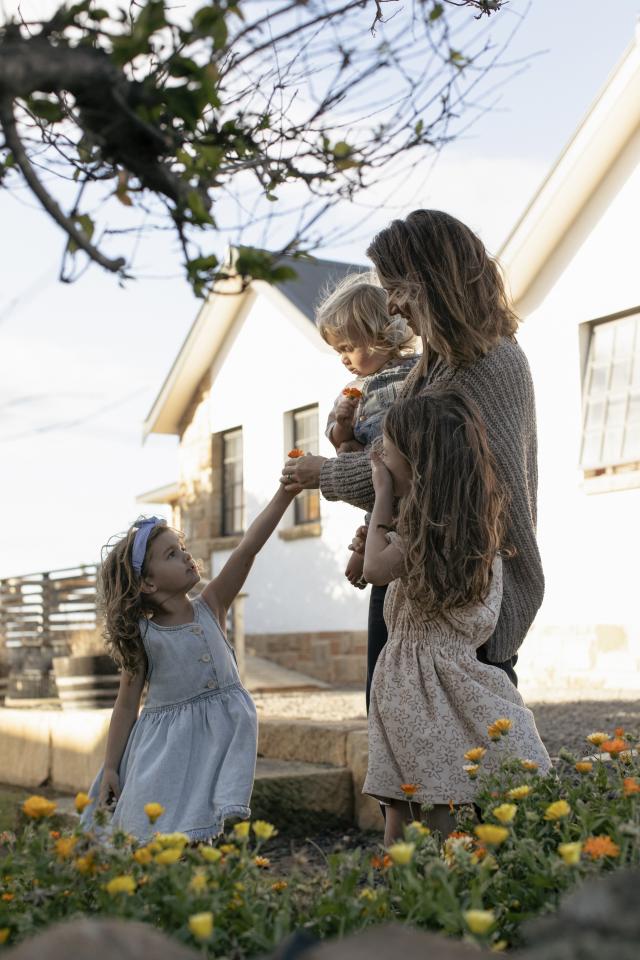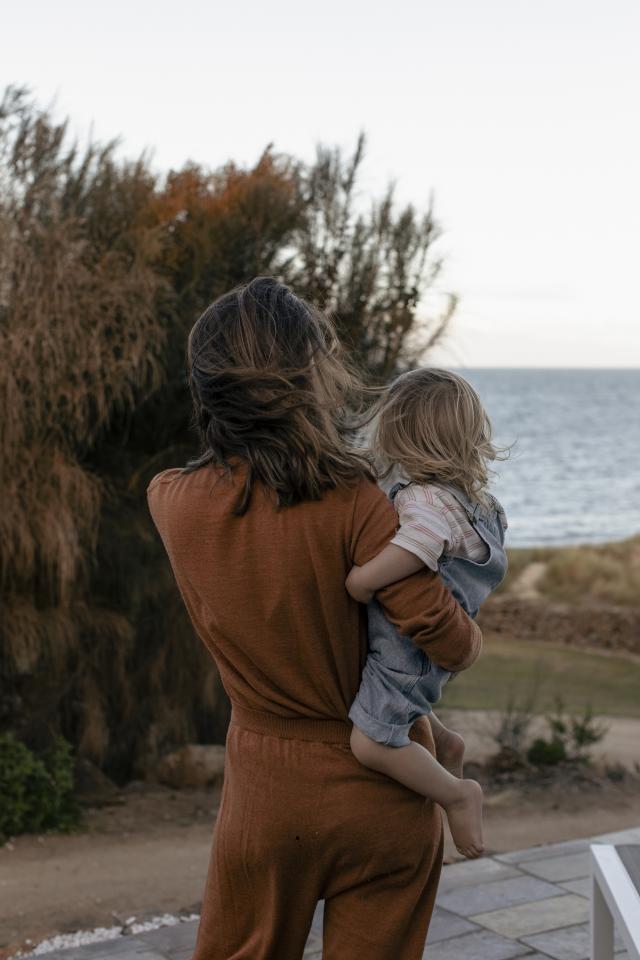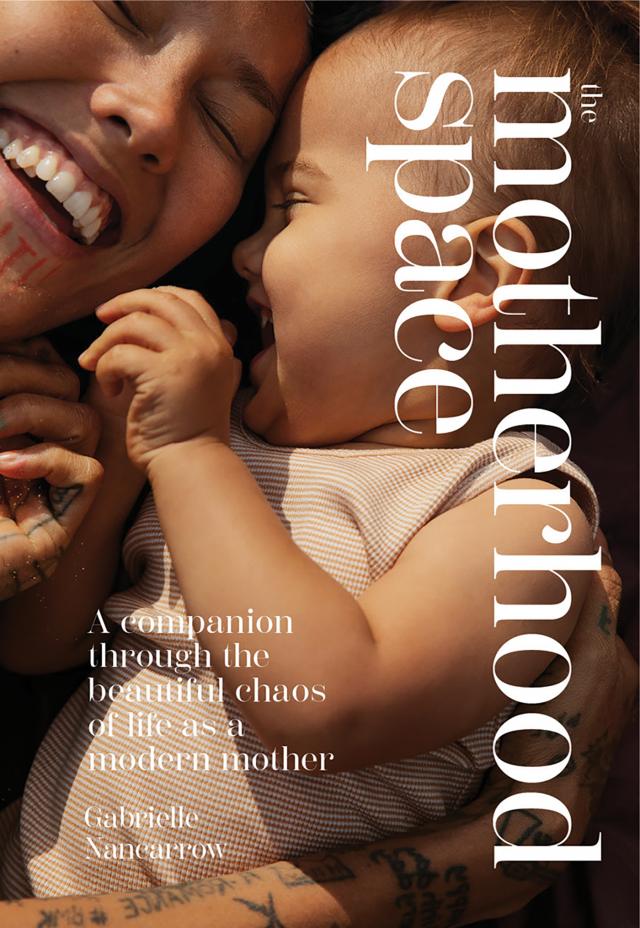By Casey Neill
Gabrielle Nancarrow is guiding new parents through the beautiful chaos of modern motherhood.
The mother of three, doula, and author released her second book, The Motherhood Space in October.
She shares her own motherhood journey alongside interviews and personal reflections from more than 50 women around the world.
“This book was written in notes on my phone, on torn pieces of paper around my home, and from conversations that have been swimming around in my head since I finished my first book,” Gabrielle wrote.
Beyond providing comfort in shared experiences, she hopes to “further the conversation of how unacceptably challenging it is to parent in a culture that does not acknowledge or value the work of motherhood”.
“The truth is, loving our children is the easy part. It’s mothering under the patriarchy that drowns us,” she wrote.
“It’s going to take time for the walls of the patriarchy to come down and to ensure that happens, change has to come from within our homes.
“Teach your children from a young age that the work of the home is everyone’s responsibility and allow them to witness both parents doing it regardless of who is in paid work and who is not.”
When Kids spoke to Gabrielle, she conceded tackling such generational change was hugely overwhelming.
“I think I’ve learnt a lot through the process of writing this,” she said.
“Governments and workplaces don’t recognise that men and women need to be equal.
“There’s still pressure on men to be those breadwinners.
“They’re not given the time and space at work to have equal parental leave.
“Genuine change needs to begin in our homes.
“The only way is if you show up in equal parts from the minute that child is born.
“So much of what has to go in is invisible.
“It’s not just practical, but the emotional load.
“They come to you to talk to you because you’re the present parent.
“Unless you have true equal time in your family, it’s really difficult for the other partner to break in on that.
“But the person doing all the work gets so resentful.”
Gabrielle lived in New York when she welcomed her first child.
She returned to work full-time just a few months later. When she returned to Australia, she took some time off before taking a part-time role.
“So then it was me as the primary, sole carer of three children,” she said.
“My partner has always worked full-time. I don’t like that.
“I would rather it was more equal, but in a practical sense he’s making a lot more money than I am.”
The home is not the only place where Gabrielle examines the need for change.
“Things have to change in the hospital system,” she told Kids.
“One of the biggest and most difficult things I work through as a doula is that women blame themselves.
“You’re up against a system that has been in place for centuries.
“It is a medical model. We have a very medicalised system.
“There’s a lot of talk about this system being broken.
“The system isn’t broken. It was set up to move a large majority of the population through a hospital system.
“There’s so much going on in a hospital system. Women are really at the bottom of the pile, unfortunately.”
She said the New South Wales government commissioned a report into birth trauma.
“A lot of it is women feeling like they’re not being heard,” Gabrielle said.
“Our intervention rate is so high that it’s normalised.
“It’s a very difficult thing to trust your gut in this type of environment.
“They present it like your baby’s life is at stake.
“You want to do what’s best for yourself and your baby.
“Informed consent is a really important part of this picture.
“A lot of women are being scared into being induced. They’re not being told the risks.
“They’re only told about the risks of waiting it out.
“They’re not getting both sides of the story.”
Women railroaded into decisions are coming out the other end traumatised or disappointed, Gabrielle said.
“Birth can be positive and empowering, but it can be the exact opposite,” she said.
“It influences how we mother, how we parent, how we birth again if we go on to have another child.”
Gabrielle’s children were aged 9, 5, and 2 when we spoke.
She wrote that one of the unexpected joys of writing the book was speaking with women whose children were older than hers and highlighted the amazing parenting journey ahead of her.
She’s “really mourning those years of babies and newborns” despite often thinking she’d never come out of them. She’s not quite ready for the next chapter.
But Gabrielle’s eldest is moving into the tween years.
“The changes in her are incredible and scary at the same time,” she said.
“It does feel overwhelming but it does feel kind of exciting.
“It feels like a new beautiful chapter I can get excited about.”










